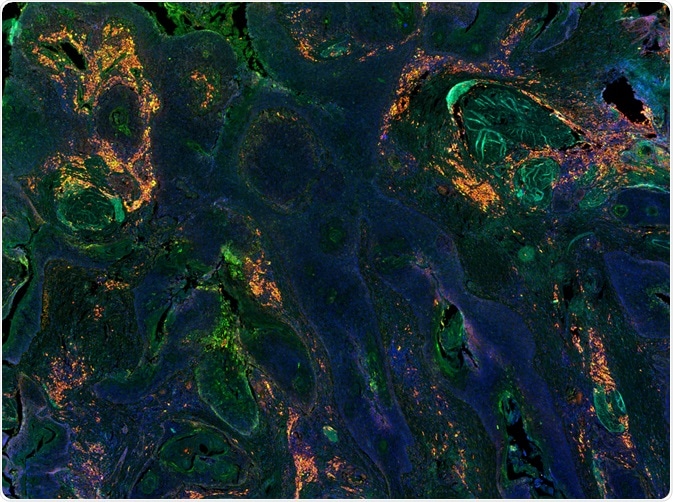Each antibody has a different optimal storage environment, ensuring their stability and reducing their degradation. If stored incorrectly, the survival of the antibody can be dramatically reduced, lasting only a few weeks rather than a few years. This article will discuss some of the key factors to consider when selecting a storage environment for a specific antibody.
 Carl Dupont | Shutterstock
Carl Dupont | Shutterstock
Temperature regulation
One of the most important factors to consider when storing an antibody is temperature. Storage in excessively high or low temperatures can lead to major chemical modifications that alter the activity of the antibody. Most antibodies are stored at temperatures lower than 4 °C, preventing degradation and microbial infection which can occur if stored at room temperature.
Cryoprotection
Another critical issue associated with antibody storage is the formation of ice crystals. These structures can lead to degradation of antibody structure, altering their effectivity. Therefore, cryoprotectants (such as glycerol and ethylene glycol) are frequently added to the antibody storage solution, halting the establishment of hydrogen bonds between molecules of water.
This approach ultimately reduces the freezing temperature of the antibody solution, which prevents ice crystal formation upon freezing. Instead, vitrification is enhanced, which does not damage the structure of the antibody.
Sterilization
It is also important that the antibody is maintained in a sterile environment in order to prevent the growth of microorganisms which can reduce the effectivity of the antibody. Therefore, antibody solutions are sterilized through filtration within aseptic environments. Additionally, anti-microbial substances can be added to the antibody solution, further preventing contamination, including both sodium azide and thimerosal.
Protease inhibition
Antibody proteolysis is a big issue for the maintenance of high-quality antibodies. Proteases cleave the antibodies and degrade them, leading to deterioration of structural quality. Protease inhibitors can, therefore, be added to the antibody solution, preventing this process and maintaining the quality of the antibody.
Concentration and the addition of antioxidants
More dilute antibodies are more disposed to deterioration as they bind to the surface of their container. Therefore, antibodies should always be stored at a maximal concentration, preferably over 1 mg/ml.
Oxidation is another major risk in the quality of antibodies, particularly an issue in those containing methionine residues. Therefore, antioxidants such as 2-mercaptoethanol (2-ME), dithiothreitol (DTT) or methionine are often added to the antibody solution to prevent this process and properly maintain structural integrity.
Lyophilization
If an antibody is unstable within a solution, lyophilization is utilized to maintain stability for long periods of time. This process dries out the antibody, preventing structural damage and maintaining their structure. This enhances the stability, allowing storage for up to 5 years when stored at -20 °C.
However, it must be considered that repetitive freezing leads to repeated freeze/thaw cycles, which can alter the stability of an antibody. Therefore, to maximize the stability of each antibody, aliquots should be pipetted out and frozen individually to reduce the amount of freeze/thawing.
Light and other factors
When antibodies are exposed to light (especially UV light), they can undergo mutations – especially when treated with photosensitivity enhancing solutions, such as Tween. Therefore, antibodies should always be stored away from intense light.
Antibodies should also be maintained within a stable environment – as shaking can lead to degradation and aggregation.
Antibody-specific storage
Therefore, there are many different factors to consider when storing antibodies, including (but not limited to): temperature, cryoprotection, sterilization, concentration, lyophilization, and light.
But specific antibodies also require specific storage. For example, enzyme-conjugated antibodies should not be frozen as they are very sensitive. They function optimally when stored long term at -20 °C with 50% glycerol. Moreover, fluorescence-conjugated antibodies are very susceptible to light and are highly sensitive to freezing. Therefore, they should be stored in the dark at 4 °C to prevent photobleaching and degradation.
Further Reading
Last Updated: Jan 18, 2019